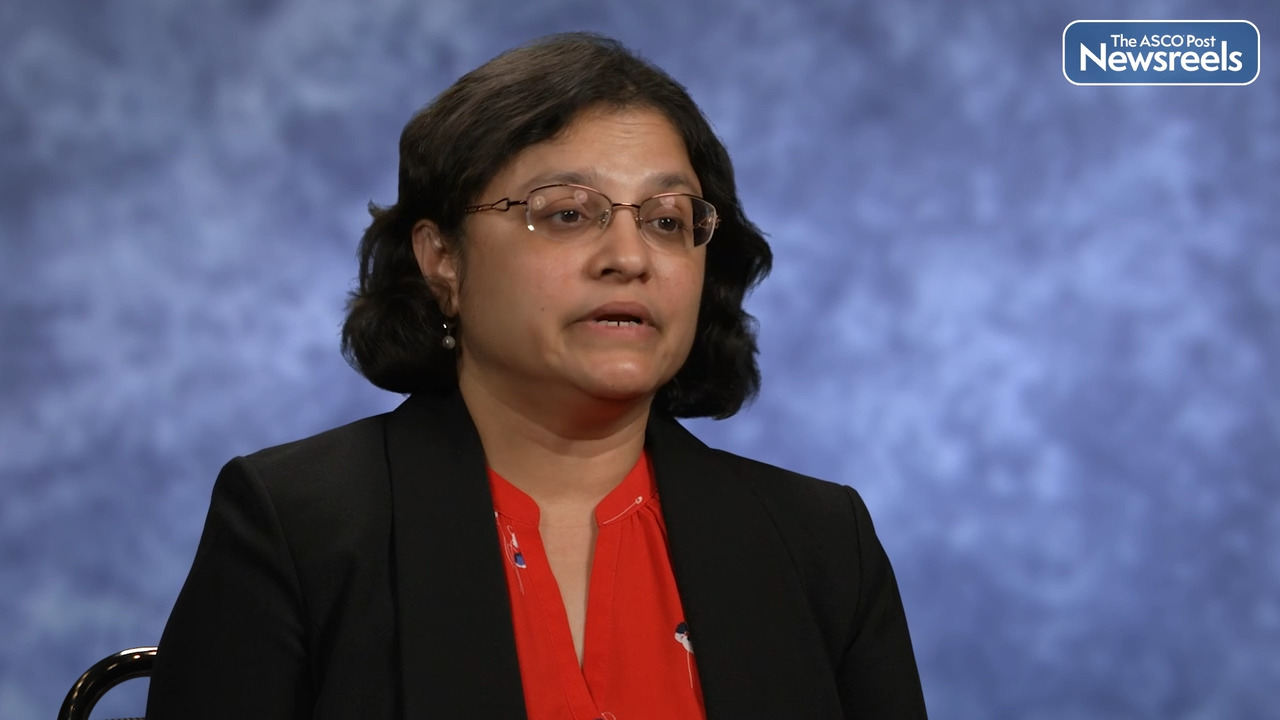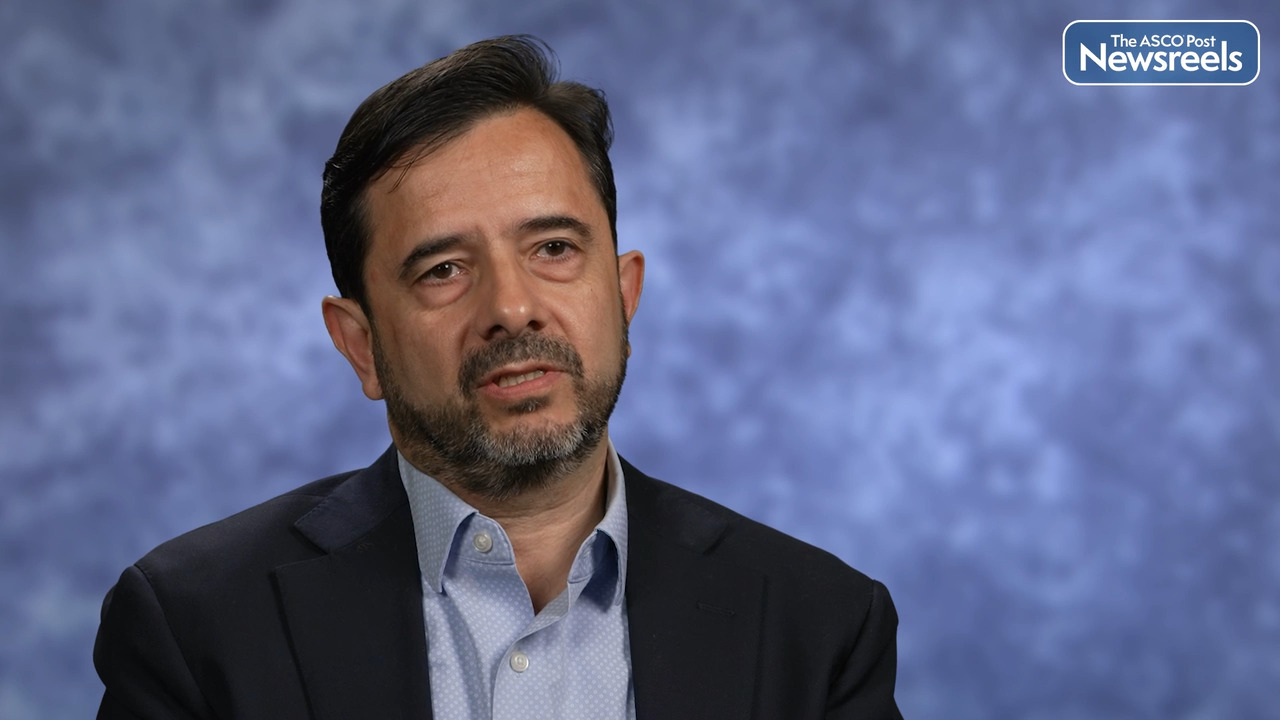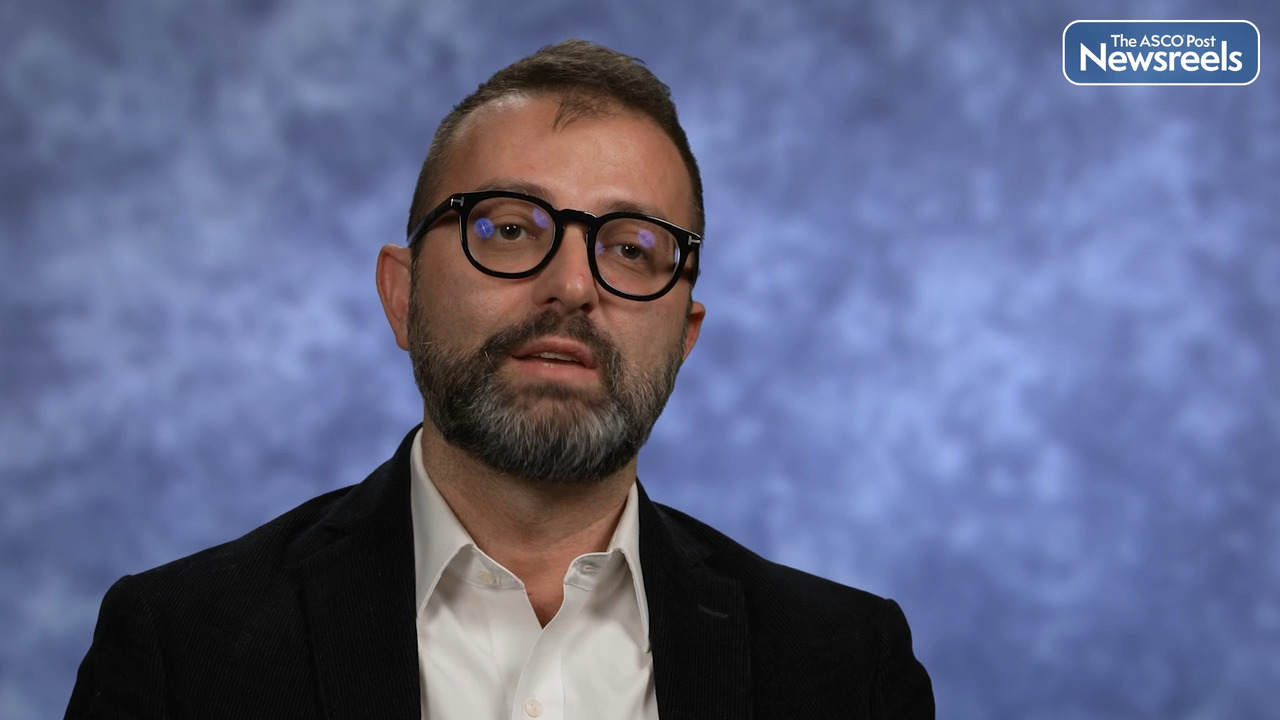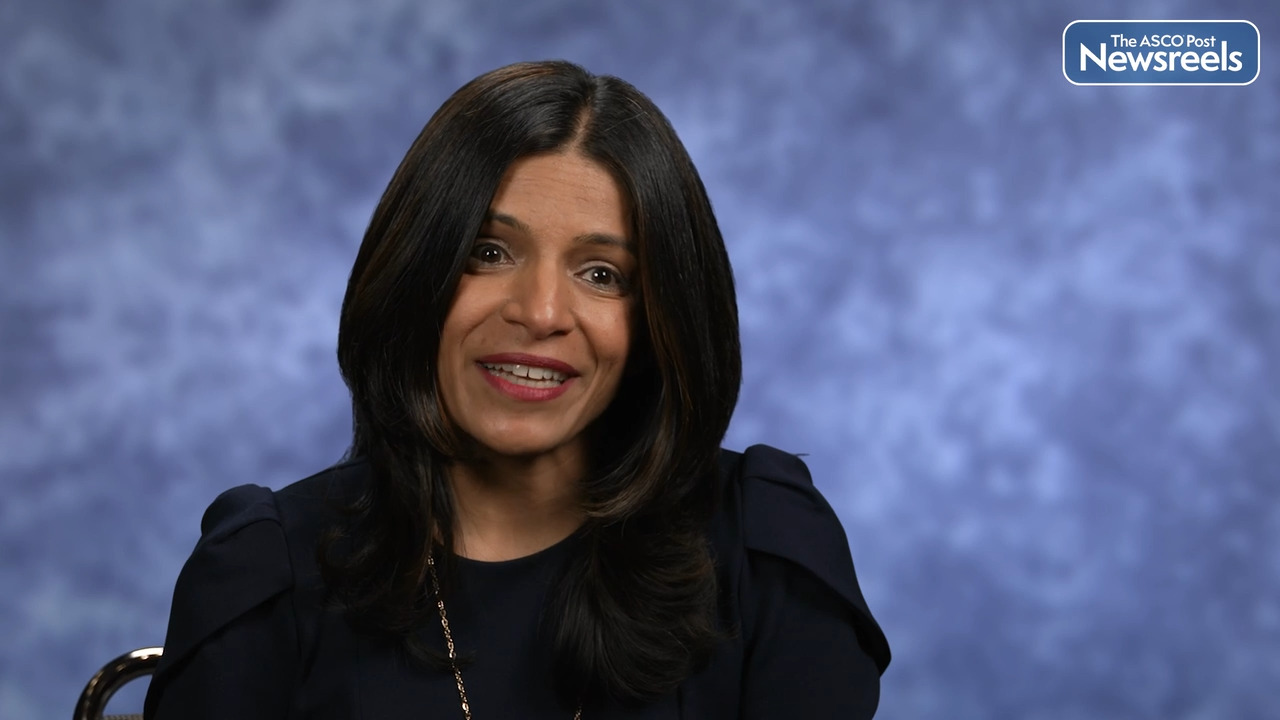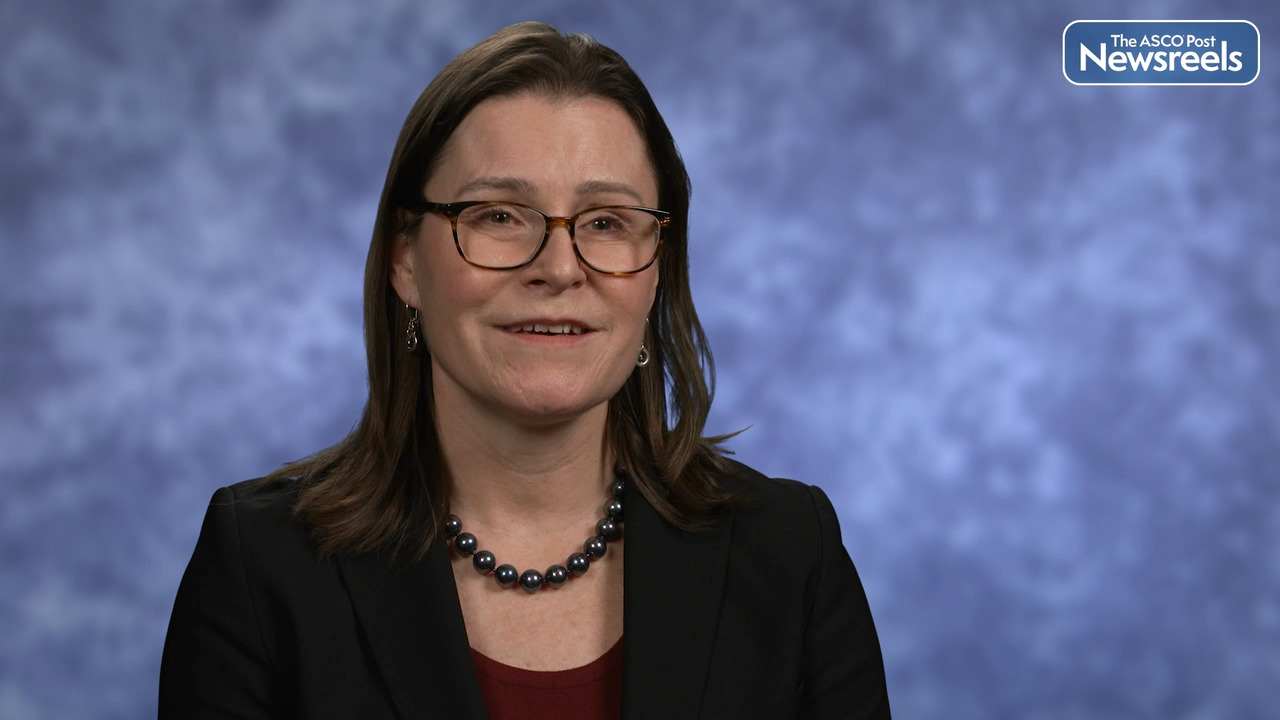Transcript
Disclaimer: This video transcript has not been proofread or edited and may contain errors.
Claudin 18.2 is a tight junction protein which mainly expressed on basolateral lesion of normal gastric mucosal cells. During the malignant transformation to gastric cancer, this claudin 18.2 is exposed on tumor cell surface and it become attractive target for cancer treatment.
Zolbetuximab is a first-in-class IgG1 monoclonal antibody against claudin 18.2, with ADCC and CDC activity. In the previous randomized phase-II trial, zolbetuximab plus first-line chemotherapy showed efficacy, especially in patients with high claudin 18.2 expression.
So this SPOTLIGHT trial is a global, randomized, double-blinded, placebo-controlled trial to involve patient with gastric or GEJ adenocarcinoma at the first line with claudin 18.2-positive and HER2-negative status. Claudin 18.2 was centrally assessed and the positive was defined as moderate to strong expression in 75% or more tumor cells. The patients were randomized to either zolbetuximab plus FOLFOX, or placebo plus FOLFOX. The primary endpoint with this study was progression-free survival by central assessment and overall survival was key secondary endpoint.
As a result, this trial involve 565 patient and their primary endpoint PFS was statistically significantly improved. Median PFS was 10.6 months with zolbetuximab arm and 8.7 months with placebo. Hazard ratio was 0.75 with P-value of 0.0066, which was highly statistically significant.
Also, this trial showed a statistically significant improvement of overall survival as a primary endpoint. Median overall survival was 18.2 months with zolbetuximab and 15.5 months with placebo. I believe this 18 months median survival should the longest median survival in global phase-III trial for gastric cancer. Hazard ratio was 0.75, with P-value of 0.0053; this is highly statistically significant. Also, it showed an improvement of one-year survival rate and a two-year survival rate.
Response rate was not radically different between arms. And notable toxicity was observed with nausea and vomiting, which is more highly observed with the zolbetuximab arm, by 20% in all grade and by 10% in grades [inaudible 00:02:50]. But very important, reduce nausea and vomiting usually occurred at first or second cycle of zolbetuximab and very transient and usually managed by infusion adjustment. Again, the frequency was clearly decreased at subsequent cycles.
So in summary, this SPOTLIGHT study showed an improvement of both PFS and the overall survival, with FOLFOX plus zolbetuximab for patients with claudin 18.2-positive population. This should one of the treatment options in future, especially for this biomarker [inaudible 00:03:27] of the population.
Now, another global study: GLOW study is also press released to have a positive result to match PFS, to meet the PFS and the OS endpoint, and I believe this result will be disclosed in future. After this kind of validation of claudin as a bio-dated biomarker, several kinds of target therapy investigate it in clinical trial. Also, in combination with checkpoint inhibitor, this zolbetuximab combination is also under-investigated in clinical trials.
